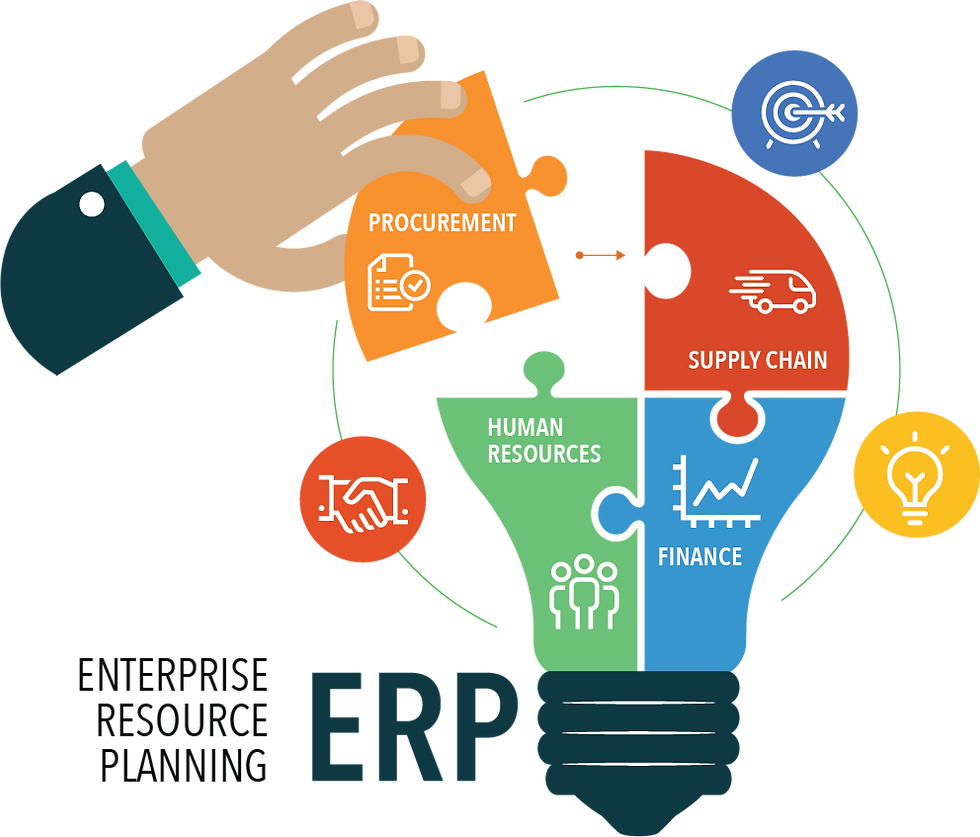Streamlining Business Operations with Account Management Systems
- solutionscakiweb
- Apr 4, 2024
- 3 min read
In today's fast-paced business environment, organizations face the challenge of managing an increasing number of customer accounts efficiently. Whether it's a small startup or a multinational corporation, the ability to effectively manage accounts is crucial for sustaining growth and building long-term relationships with customers. This is where Account Management Systems (AMS) come into play, offering comprehensive solutions to streamline processes, enhance communication, and drive business success.
Understanding Account Management Systems
Account Management Systems (AMS) are software tools designed to facilitate the management of customer accounts, contacts, and interactions. These systems provide businesses with a centralized platform to store and access critical customer data, enabling them to track interactions, monitor account health, and deliver personalized experiences.
At the core of an AMS lies a robust database that stores detailed information about each customer, including contact details, purchase history, preferences, and communication logs. By consolidating this information into a single system, businesses can gain valuable insights into customer behavior, identify opportunities for upselling or cross-selling, and tailor their marketing efforts to specific customer segments.
Key Features and Benefits
Centralized Data Management: One of the primary benefits of an AMS is its ability to centralize customer data. Instead of scattered information across multiple spreadsheets or systems, businesses can store all relevant information in one place, making it easily accessible to authorized personnel.
Improved Communication: AMS facilitates seamless communication between internal teams and external stakeholders. With features such as shared calendars, task assignments, and email integration, teams can collaborate more effectively and stay informed about customer interactions.
Enhanced Customer Relationships: By maintaining a comprehensive record of customer interactions and preferences, businesses can provide personalized experiences that resonate with their target audience. This leads to stronger relationships, increased customer satisfaction, and higher retention rates.
Efficient Workflow Automation: AMS automates repetitive tasks and workflows, such as lead management, follow-up emails, and billing reminders. This not only saves time and resources but also ensures consistency and accuracy in customer interactions.
Analytics and Reporting: With built-in analytics tools, businesses can track key performance metrics, such as sales conversion rates, customer satisfaction scores, and revenue generated from each account. These insights enable informed decision-making and strategy refinement.
Implementation Considerations
While the benefits of implementing an Account Management System are evident, businesses must consider several factors before selecting and deploying a solution:
Scalability: Choose an AMS that can scale with your business as it grows. Ensure that the system can accommodate increasing data volumes and support additional features and functionalities as needed.
Integration Capabilities: Assess the compatibility of the AMS with existing systems and tools used within your organization. Seamless integration with CRM software, marketing automation platforms, and accounting systems is essential for maximizing efficiency and data consistency.
Customization Options: Look for an AMS that offers flexibility in customization to align with your unique business processes and requirements. The ability to tailor the system to specific workflows and preferences ensures a more seamless adoption by your team.
User Experience: Consider the usability and intuitiveness of the AMS interface. A user-friendly system will encourage widespread adoption among your team members and minimize training requirements.
Data Security and Compliance: Prioritize data security and compliance with regulatory standards such as GDPR or HIPAA. Choose an AMS that employs robust security measures, such as encryption, access controls, and regular data backups, to safeguard sensitive customer information.

Customer inquiries are routed to the appropriate department automatically, reducing response times and ensuring timely resolution.
Order processing and fulfillment are streamlined, leading to faster delivery times and fewer errors.
Personalized recommendations based on past purchases and browsing history result in higher average order values and increased customer loyalty.
Comprehensive analytics and reporting capabilities enable the company to track key metrics, identify trends, and make data-driven decisions to optimize operations further.
Conclusion
In today's competitive business landscape, effective account management is essential for driving growth and maintaining a loyal customer base. Account Management Systems offer a comprehensive solution to streamline processes, enhance communication, and deliver personalized experiences to customers.
By investing in an AMS that aligns with their unique needs and objectives, businesses can unlock new opportunities for growth, improve operational efficiency, and build stronger relationships with their customers. With the right tools and strategies in place, organizations can position themselves for long-term success in the dynamic world of modern business. Learn more



Comments